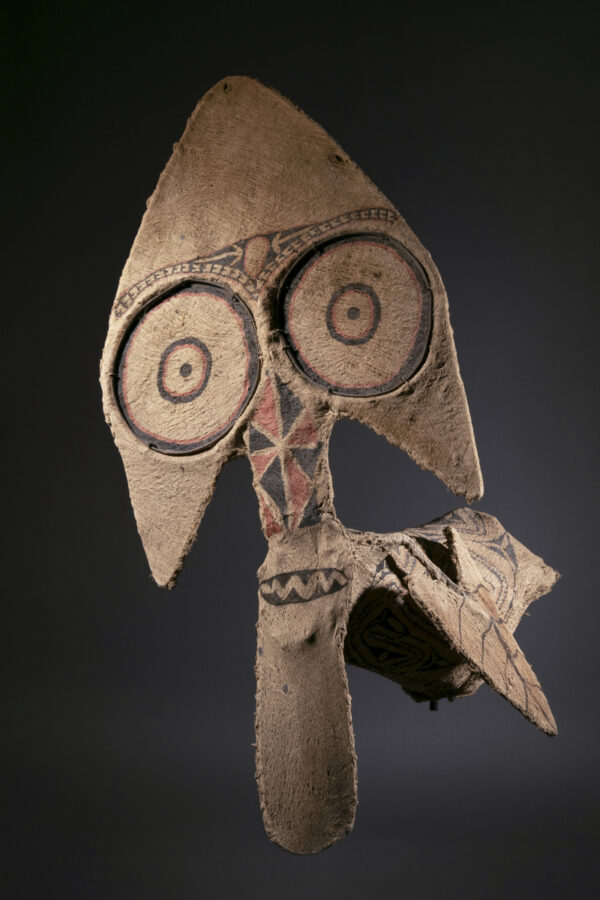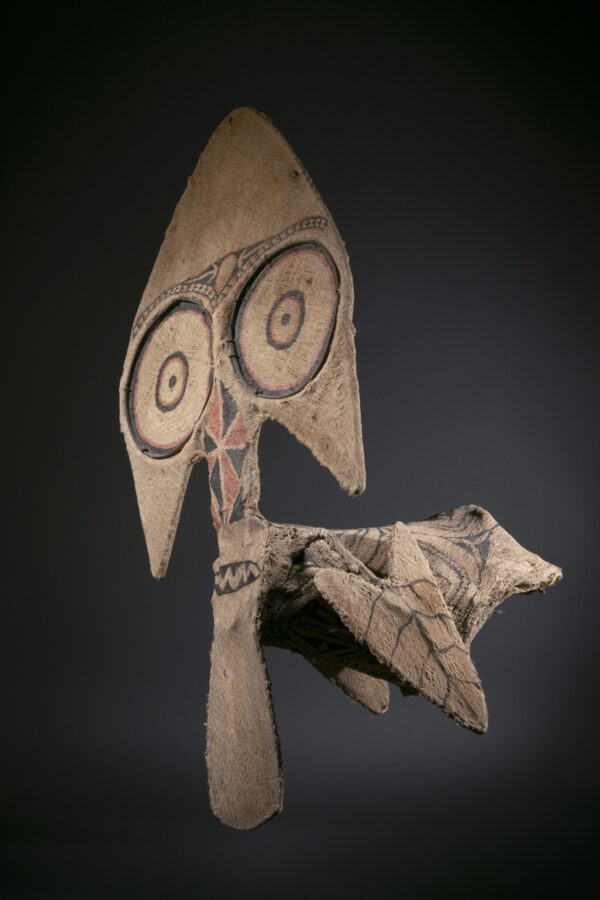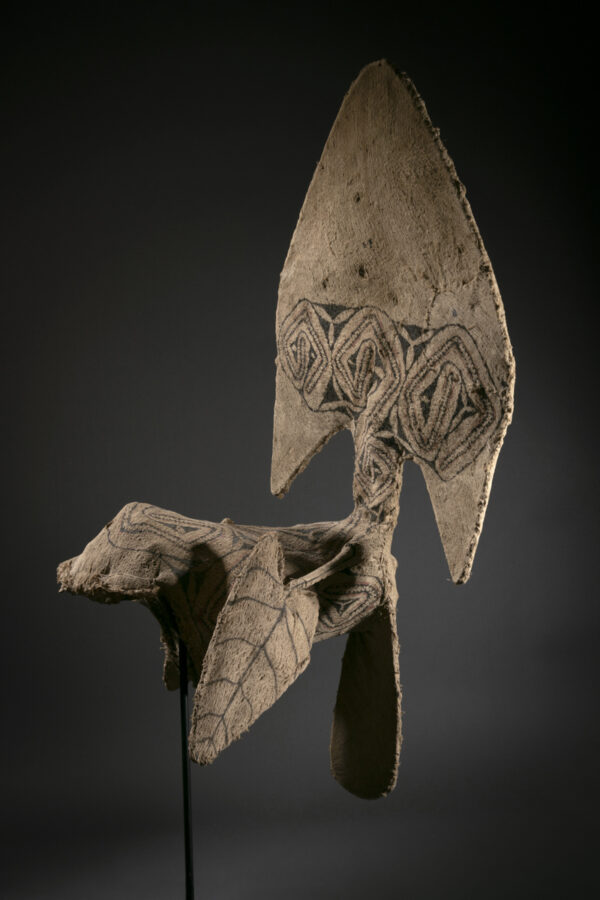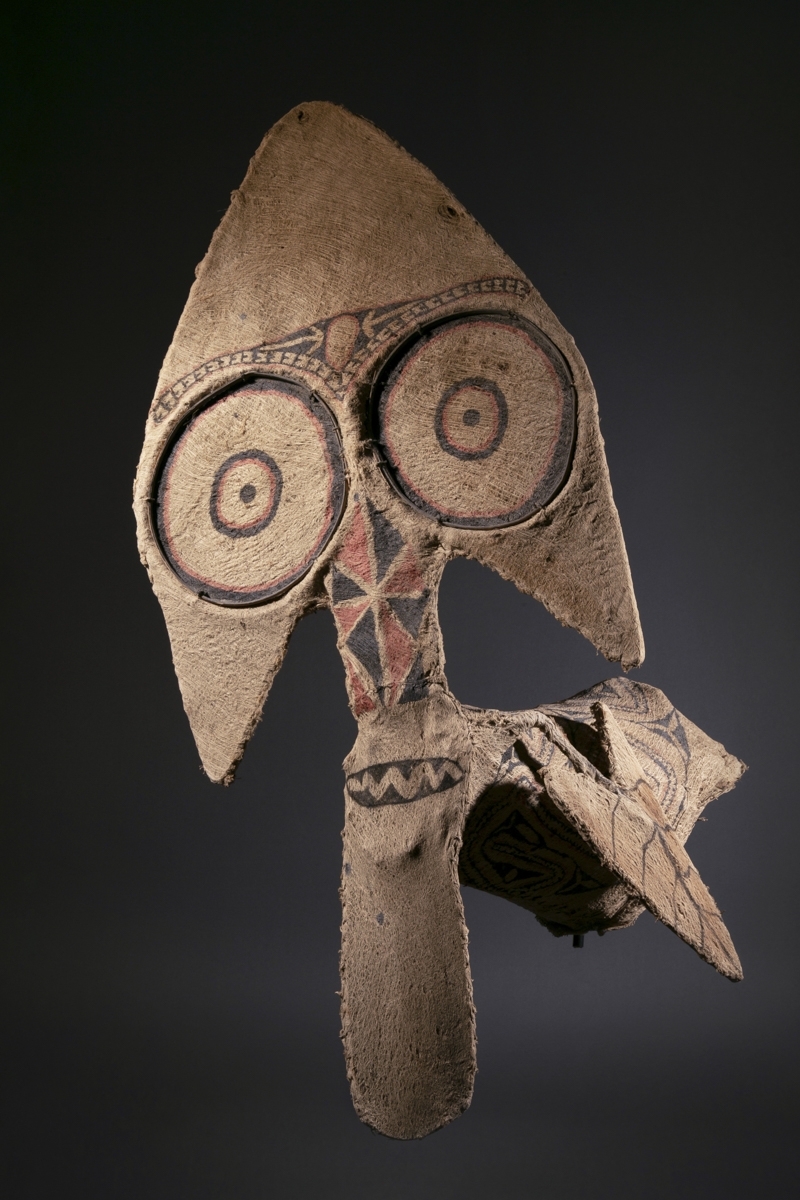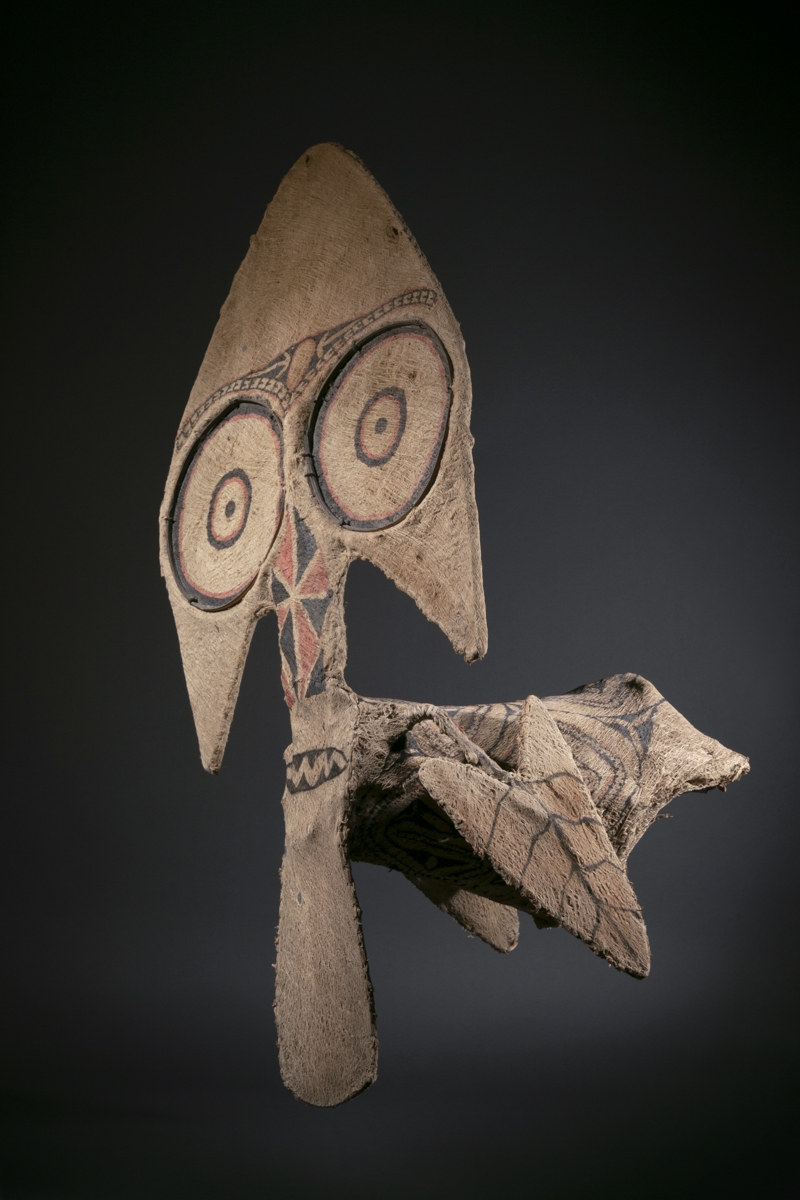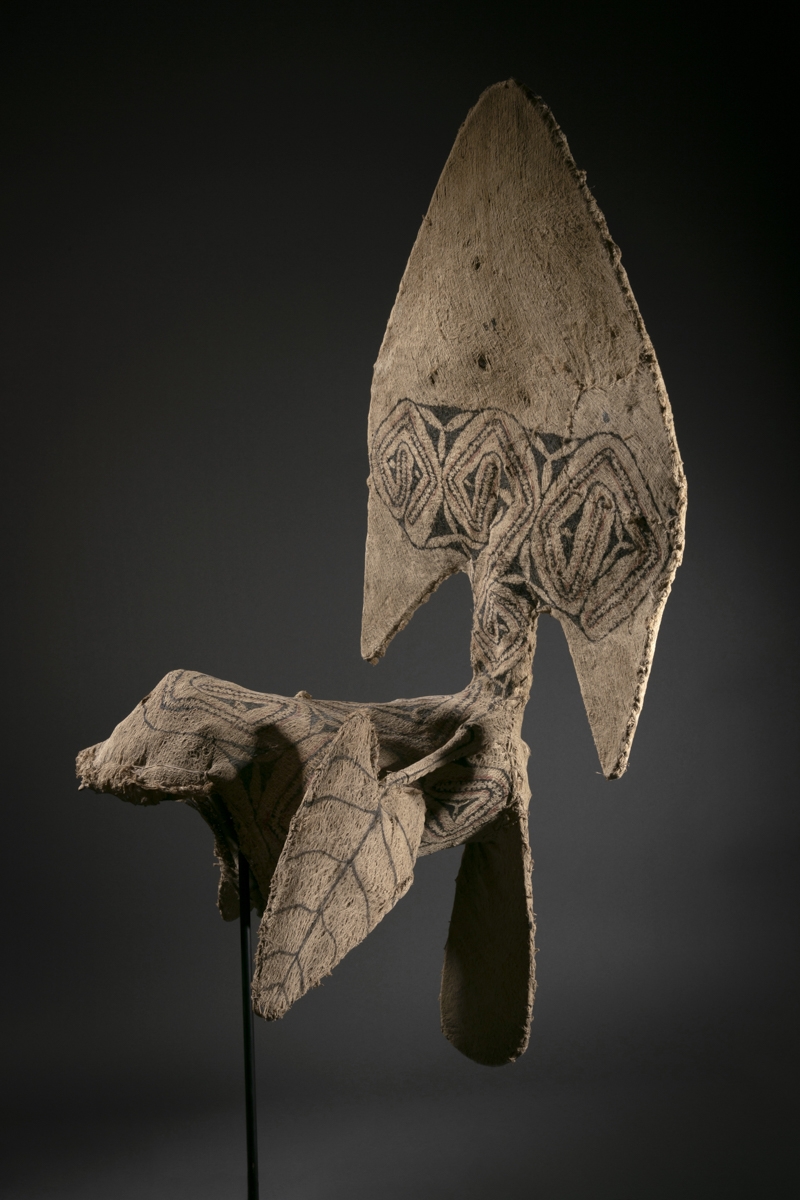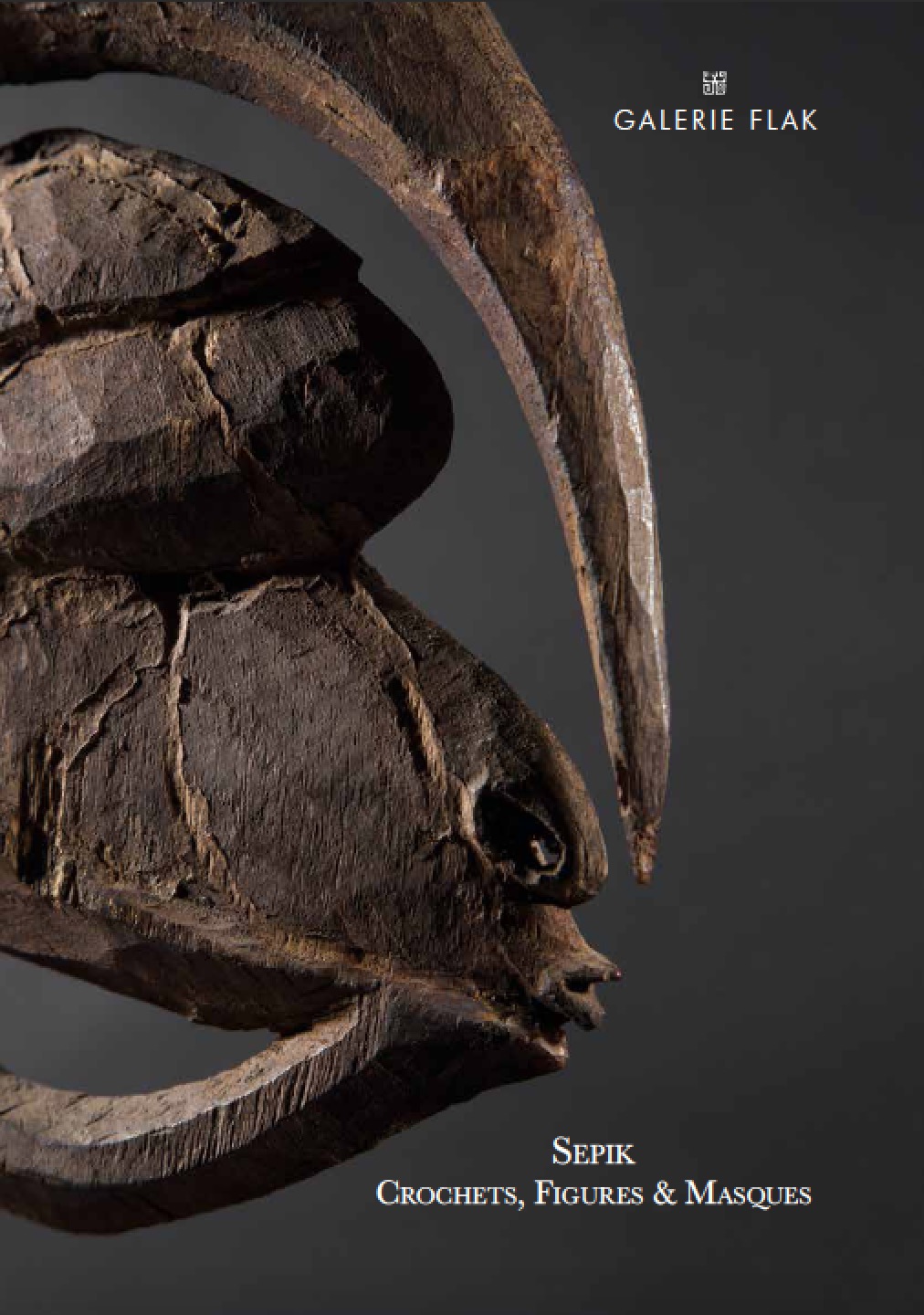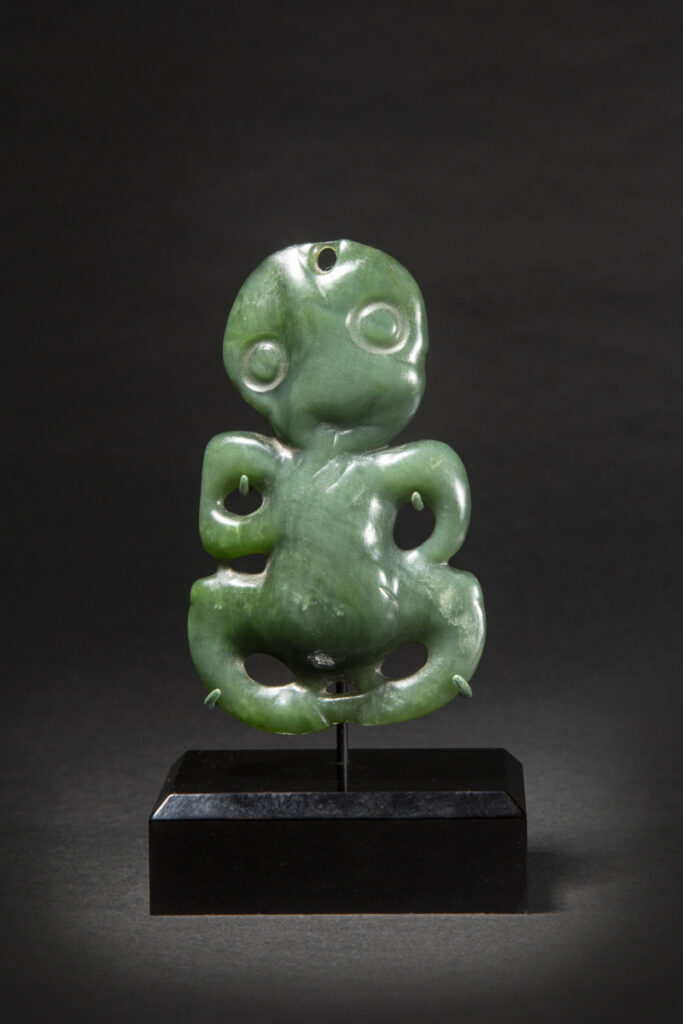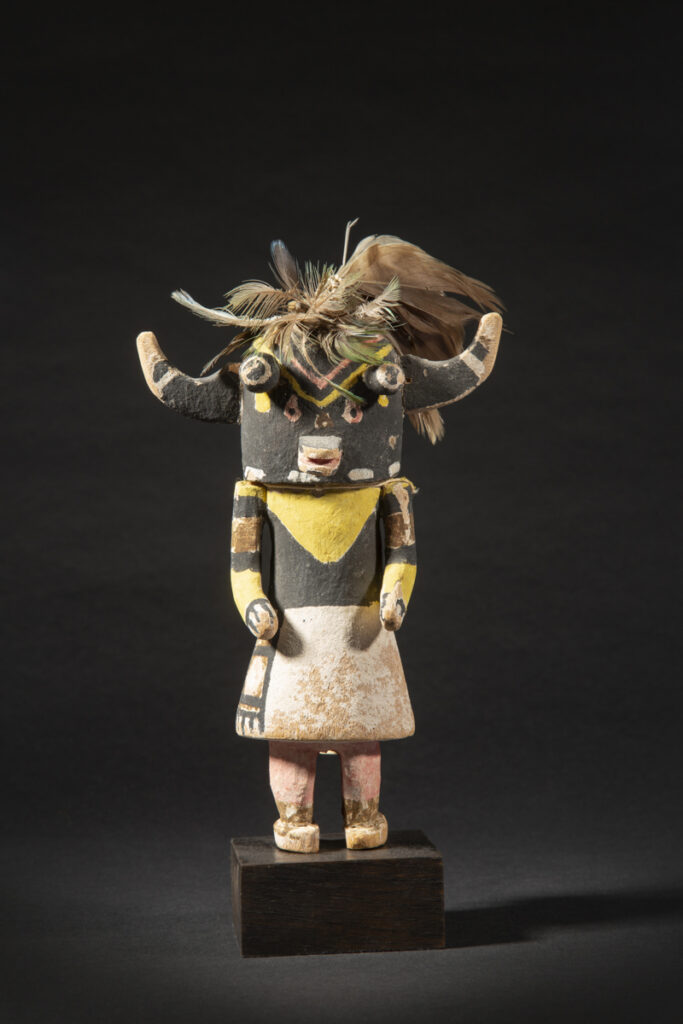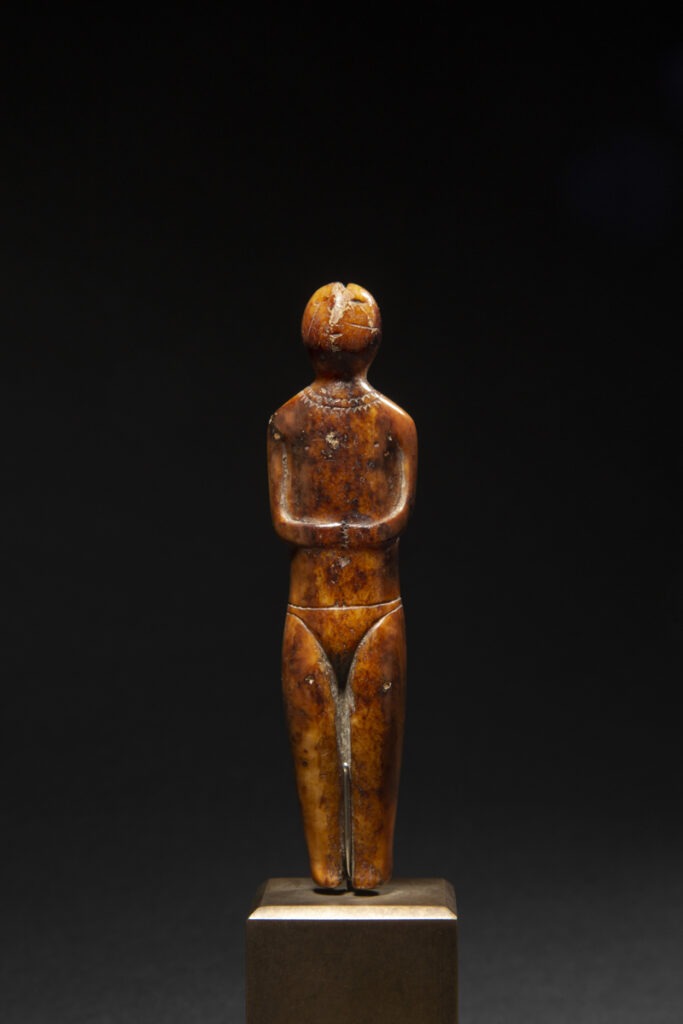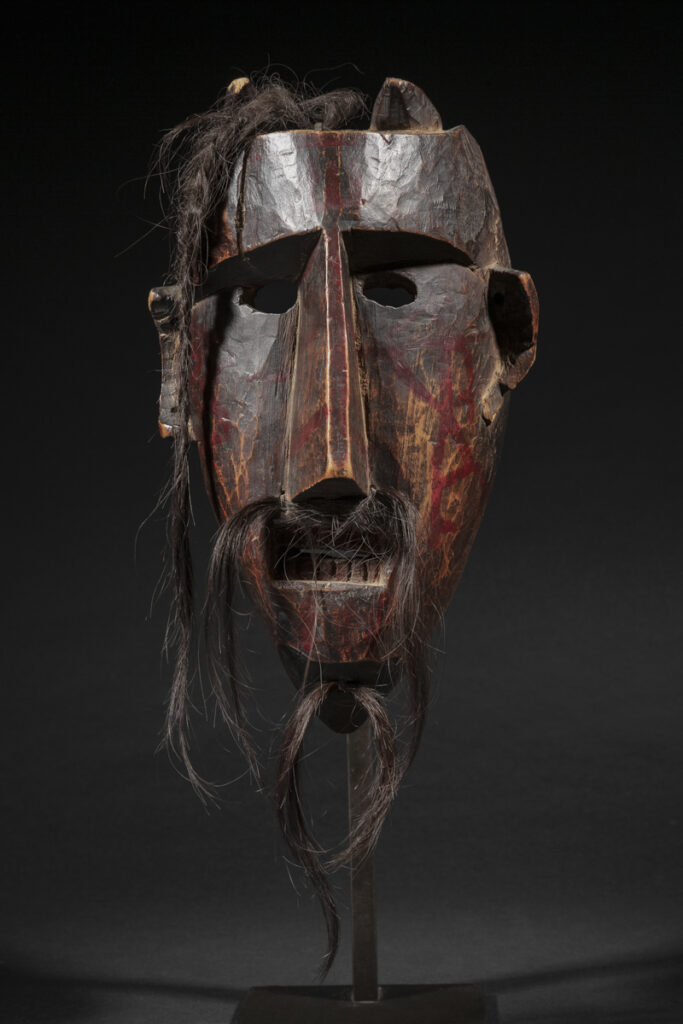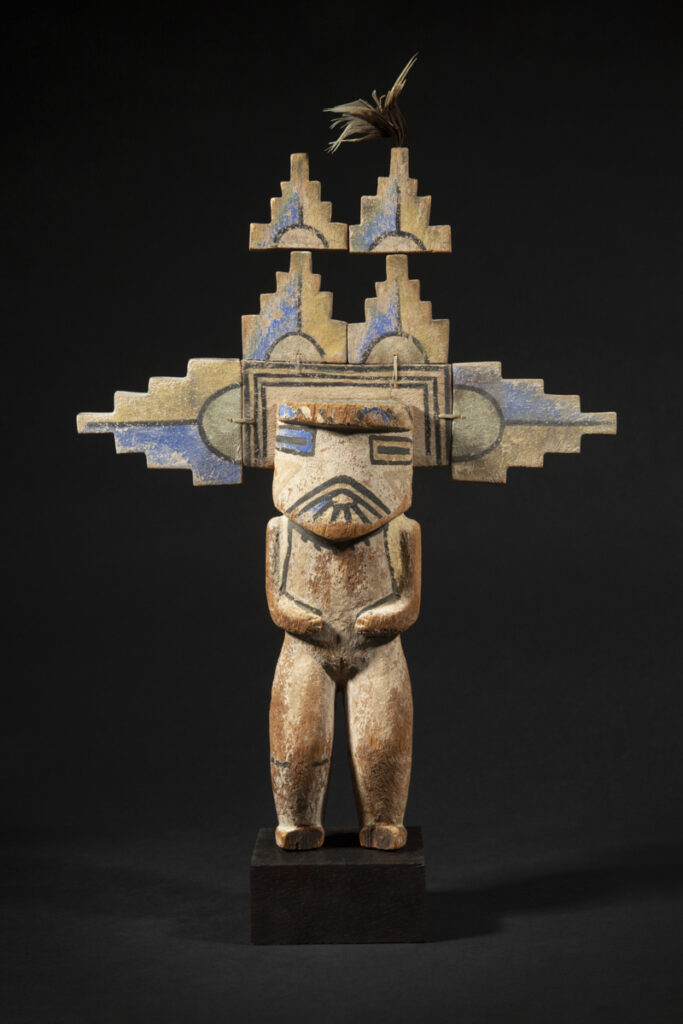oceania | New Britain
Baining Mask
New Britain
Kavat mask for night dances
Uramot-Baining people, Gazelle Peninsula
Bismarck Archipelago
Mid 20th century
Tapa (barkcloth), rattan and pigments
Height: 37 in. (94 cm)
Provenance
Private collection, UK
Baining Mask 94 cm / Galerie Flak
Price on request
This mask is made of pounded bark cloth stretched over a bamboo-cane support and colored with black and red pigments. The face with large round eyes and open round lips is highly poetic and magnetic.
The face represents a specific spirit, probably that of a special leaf used by the Baining for ceremonial foods and believed to come from a tree that absorbs evil (see Arts of the South Seas, ed. D. Newton, page 260).
As stated by the Metropolitan Museum of Art in New York, the dramatic bark cloth kavat masks created by Central Baining peoples are used exclusively in the night dance, a nocturnal performance lit by firelight. The Central Baining practice both day dance and night dance rites. The day dance, accompanied by an orchestra of women, is devoted to female fertility, agriculture, and the mourning of the dead, phenomena typically associated with the community.
The night dance, by contrast, is accompanied by a male orchestra and dedicated to spirits, animals, and commodities associated with the surrounding forest, which are represented by the kavat masks. Several dozen forms of kavat masks exist, each of which depicts a spirit linked with a specific animal, plant, product, or activity associated with the forest.
The face represents a specific spirit, probably that of a special leaf used by the Baining for ceremonial foods and believed to come from a tree that absorbs evil (see Arts of the South Seas, ed. D. Newton, page 260).
As stated by the Metropolitan Museum of Art in New York, the dramatic bark cloth kavat masks created by Central Baining peoples are used exclusively in the night dance, a nocturnal performance lit by firelight. The Central Baining practice both day dance and night dance rites. The day dance, accompanied by an orchestra of women, is devoted to female fertility, agriculture, and the mourning of the dead, phenomena typically associated with the community.
The night dance, by contrast, is accompanied by a male orchestra and dedicated to spirits, animals, and commodities associated with the surrounding forest, which are represented by the kavat masks. Several dozen forms of kavat masks exist, each of which depicts a spirit linked with a specific animal, plant, product, or activity associated with the forest.
Documentations
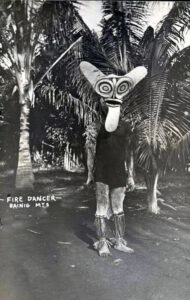
Baining people, Firedancer wearing a ceremonial mask, Gazelle Peninsula of New Britain, Papua New Guinea.
Circa 1910s,
Photographer unknown
Baining Fire Dance
Firedancer wearing a ceremonial mask, Baining people, Gazelle Peninsula of New Britain, Papua New Guinea.
March 2008
Photograph: Taro Taylor
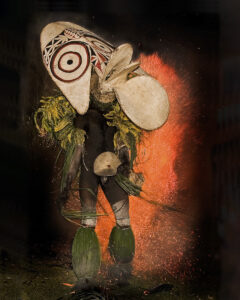
Explore the entire collection
